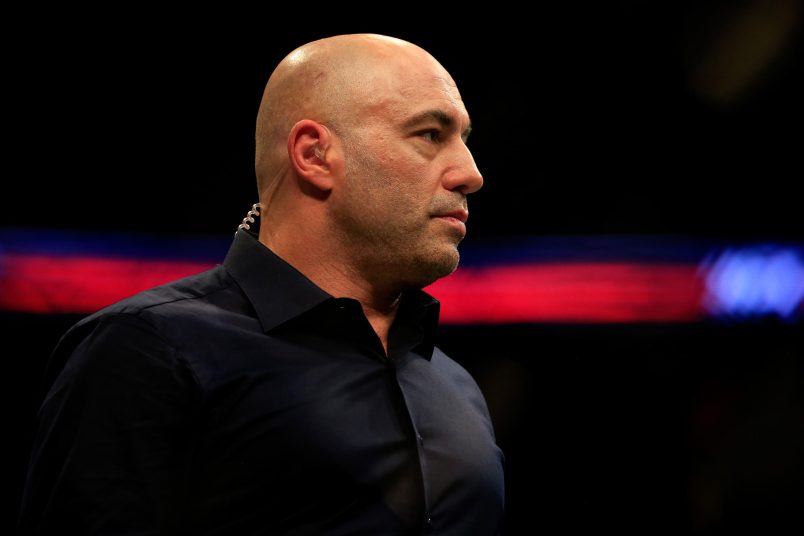You’ve probably seen this controversy with Joe Rogan and his podcast which now involves Neil Young, Joni Mitchell and a series of other musicians whose heydays were decades ago. (Not that there’s anything wrong with that! Most of the things I listen to are at least three or four decades old.) I noticed a Twitter exchange this morning that basically asked, ‘How is this controversy going on for so long?’ Maybe something is in the water. Or — given the centrality of COVID to this — in the air. But last night I had a similar thought: How are we still talking about this?
The whole thing seems more mundane and pedestrian than the way it’s being portrayed. Some of it is the focus on “disinformation” or “misinformation” in public discussions which traces back to or at least became ubiquitous after the revelations about Russian disinformation campaigns during the 2016 election.
But is this that?
This seems more mundane if still consequential. Someone like Rogan who has a massive audience should just be more responsible. Those words seem so quaint and toothless and old-fashioned. If he says that the COVID vaccine could kill you, a lot of people are going to listen to that and not get vaccinated. That’s bad because the COVID vaccines are almost unbelievably life-saving. Just this morning I noticed this statistic that people over the age of 65 who are not vaccinated are 52 times more likely to be hospitalized for COVID than those who have up-to-date vaccinations. 52 times! Countless other statistics show comparable benefits up and down the age spectrum, though the elderly are of course more vulnerable in general. People who don’t want to die from COVID should get vaccinated. People with big megaphones should be careful not to say things that are easy to disprove with a simple Google search — because people will believe them and end up hurting themselves, clogging up ICUs, dying unnecessarily.
This is obvious. Mundane. Straightforward.
We used to have more gatekeepers who would either enforce or lean on people to not be flagrantly irresponsible. Now we don’t. The players in the economy who make these decisions tend to be tech companies who think in tech rather than informational terms. And we know how that’s played out in endless debates about “free speech” and “deplatforming” and the rest at Facebook, Twitter and wherever else. We also have a whole culture of provocation which exists in a mutually reinforcing relationship with everyone trying to enforce some baseline of effort to know what is the case and what’s not the case and use that knowledge to treat people well as opposed to treat people poorly.
This may sound like I’m “bothsidesing” this, putting the quackish cranks on an equal footing with those trying to rebut them. I’m not. Or at least I hope I’m not. But this is all part of some larger collapse of public trust and cultural disintegration which transcends the offenders and those trying to police them. It’s not disinformation. It’s more mundane. Rogan is just a meathead who has a knack for entertaining and interesting conversations — clearly on the basis of his massive listenership — who should do better but won’t. And that refusal to do better, to sweat some details, and the trouble it gets him into is a significant part of his attraction to many listeners.
I noticed a New York Times reporter saying yesterday that journalists should look at themselves and ask why people trust someone like Rogan more than them. This too is precious and paradoxically self-regarding — the COVID public-messaging equivalent of the Trumper diner political wisdom reporting. It’s the idea that things that may seem inscrutable to those working in newsrooms in New York may somehow become more scrutable by looking more deeply into themselves — myopia dressed up as curiosity.
There are limits to what we can do to prevent people from lying to people who want to be lied to.

 Members-Only Article
Members-Only Article

